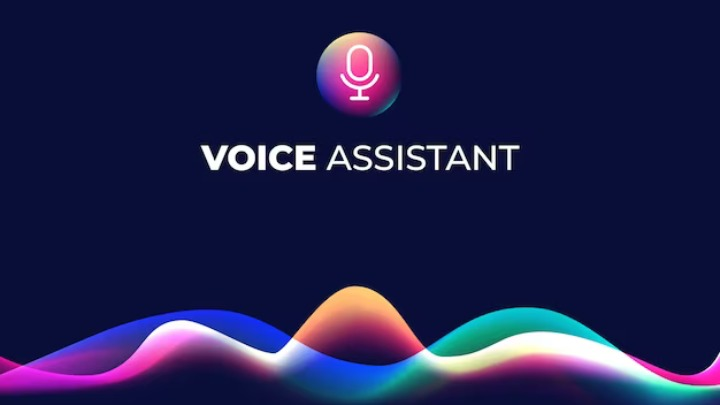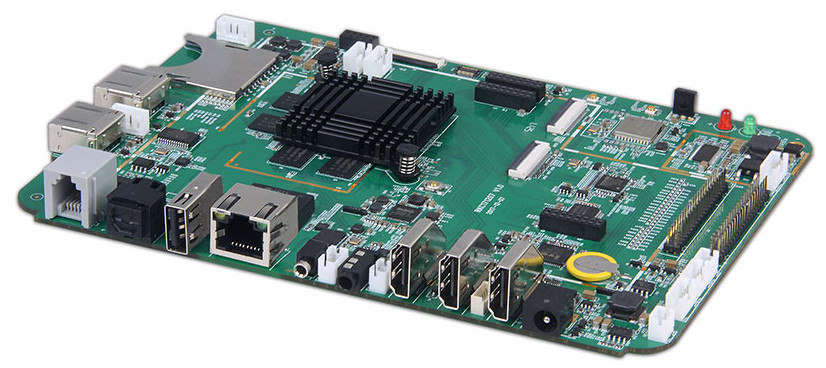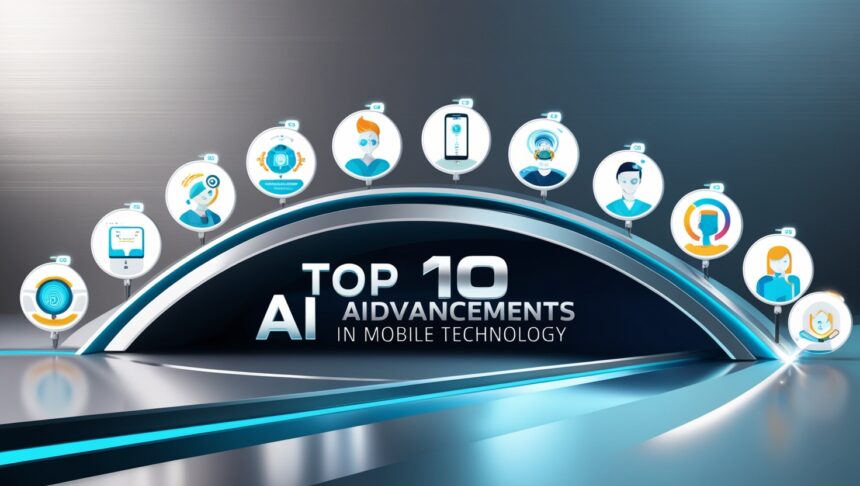In this article, I will discuss the Top Ai Advancements In Mobile Technology that are ensuring a shift in the way we operate our devices on day to day.
With the help of AI, smartphones are becoming easier to use because of catered personalization, better performance in security, and more advanced gaming features. Learn about how AI is fundamentally and wonderfully strengthening the future of mobile technology.
Key Point & Top Ai Advancements In Mobile Technology List
| Feature | Key Point |
|---|---|
| AI-Driven Personalization | Tailors user experience based on behavior, preferences, and app usage. |
| Augmented and Mixed Reality Integration | Merges digital and physical environments for immersive mobile experiences. |
| AI-Driven Battery Optimization | Extends battery life by predicting usage patterns and managing power. |
| Biometric Security Enhancements | Improves authentication with facial, fingerprint, and iris recognition. |
| AI-Powered Image Processing | Enhances photo quality in real time using smart scene detection. |
| Voice Assistants and NLP | Enables natural, conversational interactions through advanced speech tech. |
| Predictive Text and Smart Typing | Increases typing efficiency using context-aware suggestions. |
| AI-Based Fraud Detection | Identifies and blocks suspicious activity in real time. |
| AI-Enhanced Mobile Gaming | Adapts gameplay dynamically for more personalized and engaging experiences. |
1.AI-Driven Personalization
AI-powered personalization is perhaps the most remarkable use of AI in the mobile sphere as it allows smartphones to become genuinely intelligent gadgets. AI can tailor everything from suggested applications to content feeds based on each user’s behavior, preferences, and prior engagements with the applications.

Such measures will optimize the user experience. What makes this solution stand out is that mobile devices are no longer only regarded as tools; they are perceived as highly personalized instruments, which increases users’ immersion and improves the intelligence quotient of routine engagements.
Features
- User Behavior Analysis: AI-driven algorithms monitor application usage, preferences and habits to tailor specific content and recommendations.
- Adaptive Interfaces: Interfaces adjust according to user interaction, enabling real-time adjustments for a seamless experience.
- Personalized Notifications: Notifications that are tailored to user interests, schedules, and activities.
2.Augmented and Mixed Reality Integration
The incorporation of augmented and mixed reality stands out as one of the leading innovations of artificial intelligence in the mobile technology sector since it integrates the actual environment with smart virtual interfaces.

This advancement allows mobile devices to comprehend scope, identify objects, and provide situationally relevant information in real-time. Its unique value lies in enabling active engagement with the content, moving beyond passive watching to allow users employ smartphones to interact, learn, and explore the world in more intelligent and captivating ways.
Features
- Real-Time Environment Mapping: AI powers AR by comprehending the environment for better integration of digital elements.
- Object Recognition: Artificial intelligence recognizes physical objects to facilitate interactive augmented reality.
- Contextual Enhancements: Mixed reality applications adapt to the users context providing augmentation for a seamless experience.
3.AI-Driven Battery Optimization
The best mobile technology achievement powered by AI is its ability to extend battery life by understanding and anticipating user behavior. AI learns from real usage to optimize power management systems, which go beyond screens and touch interfaces, adjusting background processes, screen illumination, and interactions with applications.

AI does not attempt to impose a one-size-fits-all solution to power management; instead, it considers the unique habits of each user in order to minimize power drain while maintaining efficiency. Adaptive power management extends operation time while increasing usability and convenience mobile devices.
Features
- Usage Pattern Learning: AI learns routine patterns and predicts activities that will consume significant energy.
- Background App Management: Automatically restricts apps that waste power by running in the background and/or needlessly consuming resources.
- Dynamic Power Allocation: Based on the current tasks, adjusts the usage of CPU/GPU to enable more efficient battery usage.
4.Biometric Security Enhancements
Improvements in mobile technology brought forth with AI, especially with biometric security, stands out because of its intellectual and flexible nature compared to previous user verification systems. Analyzing faces, fingerprints and voices uses AI with advanced capabilities and technologies—devices scanning and analyzing these features can pick up even minute changes which makes access much more secure.

Their unmatched power lies in uninterrupted verification—AI observing biometric indicators offers real time security monitoring, making mobile security effortless and fortified all at once.
Features
- Multi-Modal Biometrics: Utilize a combination of a fingerprint, face recognition and voice for stronger security ratio.
- Spoof Detection: Prevents unauthorized access through AI-detected counterfeited biometrics.
- Adaptive Authentication: Security processes are tailored and modified according to the level of risk and the actions of the user.
5.AI-Powered Image Processing
The way smartphones take, edit, and process images in real time is changed by the new AI advancement in mobile technology know as AI-powered image processing. The artificial intelligence algorithms optimize each parameter that needs to be set such as light,

subject, and movement to produce high-quality images almost instantly. Users’ decisions on photo edits or selections enable the AI to improve results over time, providing a tailored experience. This enhances user experience by personalizing photography for every user.
Features
- Augmented Photo Quality: AI automatically enhances resolution, lights up the picture as required, and deletes unnecessary noise.
- Recognition of Scenes: Real time adjustment of camera functions is aided by recognition of objects and scenes.
- Editing automatically Done: Relevant filters are incorporated and edits done as per preset user styles and done by AI to match the photo content.
6.Voice Assistants and NLP
Voice assistants and natural language processing (NLP) are among the groundbreaking developments in AI technology for mobile devices as they allow users to interact with the devices in a hands-free manner. NLP, or Natural Language Processing, enables voice assistants to offer context-aware and more human-like responses.

The distinct advantage comes from the fact that they can adapt to one’s speech and preferences over time, making conversations more efficient. A smartphone can now be regarded as an intelligent, responsive, and proactive companion which functions almost like an actual human aide.
Features
- Conversations Overally Natural: Context and nuances are understood by AI which makes the interaction more human and friendly.
- Support of Many Languages: Accents and numerous dialects are recognized and processed as one seamlessly.
- Automated Task Procedures: Smart gadgets are put under control with schedules, complex commands, and in their other domains that are handled.
7.Predictive Text and Smart Typing
Smart typing and predictive text are notable innovations of AI in mobile technology as it increases mobile communication speed and precision. Based on a user’s prior texts, AI can provide better autocomplete and autocorrection options by predicting words based on their writing patterns, common phrases, and the situation.

Its power lies in its gradual learning—its ability to adapt and refine over time to vocabulary, grammar, and syntax personal to the individual facilitates quicker and more effortless usage. This increases efficiency and decreases effort in messaging, emails, and other content creation tasks.
Features
- Predictions Based On Context: With a stream of conversation, words and phrases are generated alongside it by AI.
- Fixing Errors: Any form of blunders relating to spelling or grammatically set structures are pointed at and corrected immediately.
- Describing Users: Speed in typing is enhanced as AI observes the vocabulary of the user and the style of writing.
8.AI-Based Fraud Detection
The use of AI technology in mobile applications has achieved a high level of sophistication in fraud detection by enabling advanced real time shielding against advanced persistent dangers. Anomalies in user behavior can be monitored in real time, and based on pre-trained AI systems, actions can be taken immediately to secure users.

The edge of AI solutions lies within their self-learning capabilities on emerging threats and the ability to modify their counteractive maneuvers without the need of manual processes. Such advanced systems make it possible for users of mobile devices to feel secure, even when the dangers of the digital world keep changing.
Features
- Detection of Anomalies: Unusual behavioral patterns are identified to detect possible frauds.
- Alerts in Real-Time: Users and systems are notified instantly about suspicious activities.
- Learns Adapting: Algorithms for detection are improved by continuously learning from new cases of fraud.
9.AI-Enhanced Mobile Gaming
The use of artificial intelligence in mobile games is one of the greatest advancements in AI technology since mobile games now offer smarter and adapted experiences. AI automatically balances the level of difficulty, curates content in the game, and even anticipates the actions of gamers to foster player retention.

The exceptional benefit of this technology is the immersive and appealing tailored challenges and stories that evolve with every user’s input, therefore maximizing replay value. This shift changes the nature of mobile gaming from a simple pastime to an intricate form of customized interactivity.
Features
- Dynamic Difficulty Adjustment: AI adapts problems within the game to suit the skill of the player.
- Realistic NPC Behavior: Characters that a user does not control act in a realistic and respond in a smart way.
- Personalized Content: Games modify tales, prizes, and settings due to the selections of the user.
Conclusion
Conclusively, the best mobile AI developments increase effectiveness in communication through personalization and security. Moreover, innovations like quantum computing, AI-based gaming, personalized AI features, and biometric security are transforming user experience, effectiveness, and safety.
The evolution of AI will continue to improve mobile tech, making those devices more immersive and powerful, changing the ordinary digital life in a revolutionary way.









